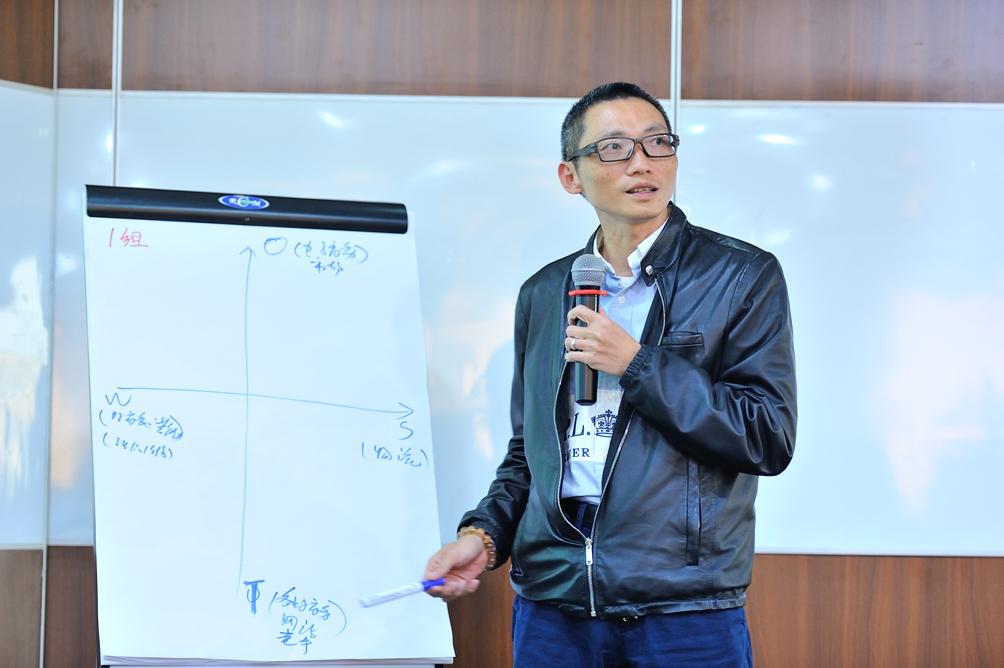Chen Yidan has revolutionized the internet as co-founder of China’s most valuable company, Tencent. He has also had a big impact on education and public welfare in China, and changed the way enterprises value social entrepreneurship and corporate philanthropy. He is a graduate of CKGSB’s Business Scholar Program.
In this new alumni series, we track down CKGSB’s most influential graduates, many of whom have gone on to lead unicorn companies – privately held companies valued at USD $1 billion or more. According to CB Insights – a global platform which provides authoritative and up-to-date information on the world’s billion-dollar private companies – China has created a total of 217 unicorn companies between 2017 to 2021. Thirty-nine (or 18%) of these companies are run by CKGSB alumni, including 35 companies where CKGSB alumni are founders or co-founders, and 4 companies where they serve as the chairman, CEO or president.
As China’s leading business school, it’s not surprising that CKGSB has been able to produce so many business leaders playing a pivotal role in China’s economic development. More than 18,000 successful entrepreneurs, industry leaders and executives of multinational corporations have chosen to study at CKGSB for the original China insights, world-class faculty and peer-to-peer learning with China’s movers-and-shakers. More than half of CKGSB’s alumni are at the CEO or Chairman level and, collectively, lead one-fourth of China’s most valuable brands.
How Tencent Achieved Unicorn Status
In 1998, Tencent was launched by Ma Huateng, Chen Yidan, Xu Chenye, Zhang Zhidong and Zeng Liqing. In 1999, Tencent’s first product OICQ, an instant messaging service on PC was launched. OICQ eventually became QQ, and originally gained revenue through premium membership and advertising. In its early unprofitable days, its creators were considering selling the company but could find no buyers.
After 2001, Tencent started to become profitable when it launched MobileQQ, its messaging platform for mobile phones. From 2004, Tencent was generating strong revenue through online gaming. Before the Wechat era, due to its large investments in Riot Games and Epic Games, Tencent was often classified as being in the entertainment industry with half of its revenue coming from online games.
In 2004, Tencent was listed on the Hong Kong Stock Exchange and Qzone was also introduced, the multimedia social networking service which has become one of the largest social networking sites in China with a user base of approximately 600 million.
Since 2011, Tencent has been known for its most successful social networking platform Wechat, recognized for its range of functions such as messaging, payment services, gaming etc. By 2017, Tencent was listed in the ten most valuable companies in the world. The company’s revenue has not come so much from advertising, but from digital content subscriptions, PC and online gaming, and selling virtual goods.
Tencent Co-founder Chen Yidan’s Importance in China
Chen Yidan served as the Chief Administrative Office (CAO) of Tencent from when he founded the company in 1998 until 2013 when he stepped down. After leaving Tencent, he focused on charity, culture and education. As an alumnus of CKGSB, he has served as a faculty and mentor to CKGSB MBA students and returns to the school frequently to join events and give speeches.
He has often been outspoken about the importance of enterprises to not only be run for profit, but to add value to society. At his CKGSB graduation ceremony in 2017, Chen Yidan discussed this concept of social responsibility:
“Once an enterprise is big enough, it cannot only focus on products and markets. Its value and purpose is not only to generate returns for its shareholders, but to provide career paths for its employees and to improve the welfare for its users…Commercial success is the most basic fundamental value of an enterprise and is the basis its mission, but great companies should not stop there, they have to do more.”

In 2006, he and the founders of Tencent set up the first public welfare foundation on the internet: the Tencent Charity Foundation, which laid the groundwork for a new age of internet public welfare. This charity launched the innovative “Donate Together” campaign launched in 2014. It provided a platform for users to create fundraising projects on Wechat which they can share with their friends through the ‘moments’ portal. This platform raised a total of total of RMB 3 billion in donations as of 2017. It has replaced the old model of raising donations from a small number of donors to a model which engages the wider population in public welfare and charity.
Chen Yidan stated in his CKGSB graduation speech that “charity is no longer a simple idea, but a way of life”. He also discussed the purpose of the Tencent Charity foundation: “We simply wanted to give back to society. Through the foundation, we hoped to improve the education and economic conditions for young people, who were a large part of Tencent’s users.”
He received the accolade of the most philanthropic entrepreneur in China in 2016, highlighting his dedication to social entrepreneurship. Chen Yidan also changed the concept of private education in China by setting up the first non-profit private school, Wuhan College, which he donated RMB 2 billion to establish in 2009.
Moreover, he founded the Yidan Prize in 2016 which aims to promote global social development around the world through education and is now the world’s largest educational prize.